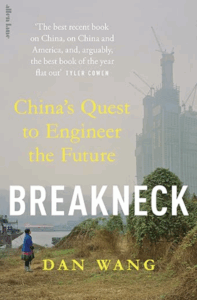In case of fire…

… call photographer.
Arles, July 2022
Quote of the Day
“Fifteen years ago, the internet was an escape from the real world. Now the real world is an escape from the internet.”
- Noah Smith
Musical alternative to the morning’s radio news
Ralph Vaughan Williams | The Sky Above the Roof | Barbara Dickson
Thanks to Kevin Nolan for alerting me to it.
Long Read of the Day
AI Friends too cheap to meter
Really thoughtful essay by Jasmine Sun, a remarkably insightful observer of the tech industry. In it she tackles one of the most surprising discovery of the current LLM-dominated era — the astonishing attachment of humans to these ‘stochastic parrots’.
We passed the Turing Test years ago and not enough of us are talking about it. There is something powerfully disorienting about software that speaks in human form—the fact that chatting with a frontier LLM is indistinguishable from an enthusiastic online stranger, the fact that a bot’s message bubbles look no different than ours, the fact that so many AI researchers have slipped in and out of believing in model sentience after long-winded chats. It seems there is something physiological about this response: we can read as many disclaimers as we want, but our human brains cannot distinguish between a flesh-and-bones duck and an artificial representation that looks/swims/quacks the same way.
Why do people become so attached to their AIs? No archetype is immune: lonely teenagers, army generals, AI investors. Most AI benchmarks show off a model’s IQ, proving “PhD-level intelligence” or economically useful capabilities. But consumers tend to choose chatbots with the sharpest EQ instead: those which mirror their tone and can anticipate their needs. As the politically practiced know, a great deal of AI’s influence will come not through its superior logic or correctness, but through its ability to build deep and hyperpersonalized relational authority—to make people like and trust them. Soft skills matter, and AI is getting quite good at them.
Do read it. We’re moving from an era of social media to relational computing.
Would you pay an AI to read your book?
My latest Observer column…
Kevin Kelly thinks that authors have got the wrong idea. “They believe,” he writes, “that AI companies should pay them for training AIs on their books. But I predict in a very short while, authors will be paying AI companies to ensure that their books are included in the education and training of AIs. The authors (and their publishers) will pay in order to have influence on the answers and services the AIs provide. If your work is not known and appreciated by the AIs, it will be essentially unknown.”
If that reminds you of the famous “Right to be forgotten” on the internet decision by the European court of justice in 2014, then join the club. That judgment empowered European citizens to petition for the removal from search engine results of embarrassing online information about them.
It wasn’t truly a right to be forgotten, merely a right not to be found by Google – and in that sense it was an implicit acknowledgment of the search engine’s power. If Google didn’t find you, then you didn’t exist.
Kelly’s thesis likewise rests on an implicit long-term vision of the kind of power and authority these machines might eventually come to wield…
Books, etc.

This is one of the most interesting books I’ve read this year. But it’s quite long and if you’re stretched for time, this recorded conversation between the author and Francis Fukuyama will give you a pretty good insight into it. The video is 36 minutes long, but worth it.
My commonplace booklet
I guess the reason Zohran Mamdani’s election has resonated so widely is that it’s the first bit of good news from the US since January. What was missed in much media coverage, though, is that there were lots of other elections across the country on the same day, and the results seems to have been a clean sweep for the Democrats. Was this a straw in the wind or a flash in the pan? Hard to say. The real test will be in the mid-term elections coming next November. That is, unless Trump tries to prevent them
Coming back to the speech, I was struck by an attentive reading by the inimitable Neila Orr on the LRB blog. Among the things she picked up was the significance of Mamdani’s quoting of Eugene Debs. It’s a long time since anyone prominent in American politics mentioned him.
The speech was both sweeping and precise, by turns tender and truculent. Mamdani positioned himself once again as both an equity-minded reformer and an anti-establishment crusader. There were invocations of ‘hope’, and it was hard not to hear the echo of one of the slogans for Barack Obama’s first presidential campaign. ‘Tonight we have spoken in a clear voice: hope is alive,’ Mamdani said. ‘While we cast our ballots alone, we chose hope together. Hope over tyranny. Hope over big money and small ideas. Hope over despair. We won because New Yorkers allowed themselves to hope that the impossible could be made possible.’
He stayed on message, and repeated once again his three campaign promises of fast and free buses, universal childcare, and a rent freeze on rent-stabilised apartments. He called this triptych of initiatives ‘the most ambitious agenda to tackle the cost-of-living crisis that this city has seen since the days of Fiorello La Guardia’ – the pathbreaking leftist politician who governed the city from 1934 to 1946, in Mamdani’s view the best mayor New York has ever had.
This Blog is also available as an email three days a week. If you think that might suit you better, why not subscribe? One email on Mondays, Wednesdays and Fridays delivered to your inbox at 5am UK time. It’s free, and you can always unsubscribe if you conclude your inbox is full enough already!
